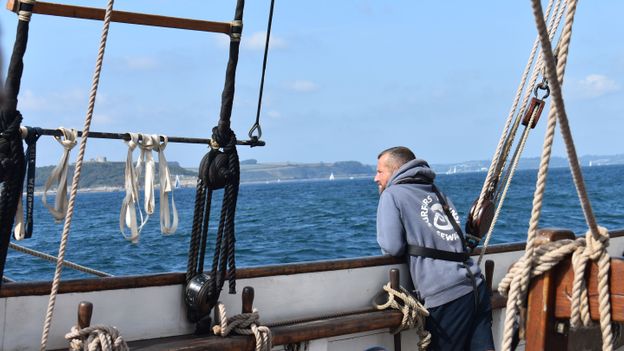But many experts now believe that blue spaces, such as lakes and rivers, could be even more beneficial than green ones.
“Blue spaces provide us with distractions that take our minds off the everyday hassles of life,” says Kate Campbell, a health psychology researcher at Te Herenga Waka-Victoria University of Wellington, New Zealand. “The sound of crashing waves, the smell of salty air, the crunch of sand under our toes… The sensations relax our bodies and tell our minds to shut down.”
Campbell believes that humans have “an innate predisposition” toward natural environments that once benefited us as an evolving species. The natural spaces that provided pre-modern humans with food, comfort, and safety likely provide a similar sense of tranquility even in today’s urban world. Spending time in blue spaces, Campbell says, can feel like “coming home.”
The blue health concept emerged nearly 10 years ago when researchers at the University of Sussex asked 20,000 people to record their feelings at random times. They collected over a million responses and found that people were by far the happiest when in blue spaces.
More recently, experts from Glasgow Caledonian University (GCU) have discovered that spending time in blue spaces reduces the risk of stress, anxiety, obesity, cardiovascular disease and premature death.
Niamh Smith, a researcher at GCU and co-author of the study, says the team found an impact on mental and general health by spending time in blue spaces. The research also linked time spent in the blue space with a reduction in body mass index (BMI) and a lower risk of mortality.
“People I really value the therapeutic spacesays Smith. “They love the sound of rushing water, having a thoughtful space to sit quietly, a place to clear their heads away from the hustle and bustle of daily life.
“We know that there are four main ways that blue spaces benefit health: through physical activity, stress reduction and the provision of a space for socialising. [and finally the] environmental factors that affect our health. For example, if a river is lined with trees, you have shade.”
In fact, blue spaces are so good for your health that your doctor can now prescribe them.
blue prescription
“My depression comes in cycles,” says Harune Akthar, speaking from her home in west London.
About ten years ago, the 27-year-old was diagnosed with borderline personality disorder, ADHD, depression and anxiety.
“When I had a bad day, it would take me three to four days to recover,” he says. “I slept in and ignored everyone, including my family, and I love my family. I didn’t eat. You rarely saw me.”
For years, Akthar tried a variety of different therapies, but found none that helped. Then, in June of this year, his doctor referred him to blue prescription scheme run by the Wildfowl and Wetlands Trust (WWT), A charity.
After the first day, he didn’t think it was for him. At the end of the second, she couldn’t wait to go back.
.
